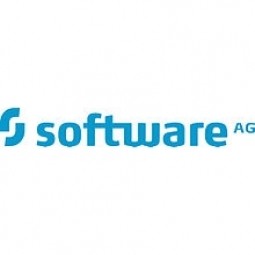下载PDF
Relief for Growing Pains at a Leading Medical Devices Company
技术
- 平台即服务 (PaaS) - 连接平台
- 平台即服务 (PaaS) - 数据管理平台
适用行业
- 医疗保健和医院
适用功能
- 离散制造
- 物流运输
用例
- 预测性维护
- 远程资产管理
- 远程协作
服务
- 云规划/设计/实施服务
- 数据科学服务
挑战
The company, a global leader in medical technology, services, and solutions, was facing several challenges. They were in the process of transforming into an outcome-based healthcare solutions provider and needed to quickly integrate acquisitions to maximize operating efficiencies. The company was also looking to change how the world delivers patient care. The company's systems were previously locked down by point-to-point integrations, which was not flexible and technology-dependent. The company needed a more flexible, technology-agnostic solution for lower-cost internal and partner integrations that could be quickly configured, turned on, and changed.
关于客户
The customer is a global leader in medical technology, services, and solutions. It is one of the world's largest medical technology companies with thousands of employees around the world. The company holds thousands of patents and its therapies treat dozens of medical conditions, including chronic diseases like diabetes, obesity, cancer, and heart disease. Each year, millions of people's lives are improved by this company. The company is committed to addressing the changing needs of the 21st century by developing healthcare solutions that are connected and coordinated.
解决方案
The company adopted Software AG's Digital Business Platform, specifically webMethods, for application integration and messaging, B2B and managed file transfer, and process automation. webMethods became an enabler for business process management at the company as well as customer success management, thanks to cloud integration with Salesforce.com. The company also consolidated all file transfers on webMethods ActiveTransfer, a managed file transfer solution that relieves the pain of managing thousands of B2B transactions, like purchase orders and invoices, across a growing partner network. When the company made a major strategic acquisition in the mid-2010s, webMethods continued to pay off. The acquisition created a multi-billion-dollar provider of healthcare services and one of the world's largest medical technology companies. webMethods, which works with any technology, simplifies the company's largest and most mission-critical integration, allowing applications to be integrated quickly.
运营影响
数量效益
相关案例.

Case Study
Hospital Inventory Management
The hospital supply chain team is responsible for ensuring that the right medical supplies are readily available to clinicians when and where needed, and to do so in the most efficient manner possible. However, many of the systems and processes in use at the cancer center for supply chain management were not best suited to support these goals. Barcoding technology, a commonly used method for inventory management of medical supplies, is labor intensive, time consuming, does not provide real-time visibility into inventory levels and can be prone to error. Consequently, the lack of accurate and real-time visibility into inventory levels across multiple supply rooms in multiple hospital facilities creates additional inefficiency in the system causing over-ordering, hoarding, and wasted supplies. Other sources of waste and cost were also identified as candidates for improvement. Existing systems and processes did not provide adequate security for high-cost inventory within the hospital, which was another driver of cost. A lack of visibility into expiration dates for supplies resulted in supplies being wasted due to past expiry dates. Storage of supplies was also a key consideration given the location of the cancer center’s facilities in a dense urban setting, where space is always at a premium. In order to address the challenges outlined above, the hospital sought a solution that would provide real-time inventory information with high levels of accuracy, reduce the level of manual effort required and enable data driven decision making to ensure that the right supplies were readily available to clinicians in the right location at the right time.

Case Study
Gas Pipeline Monitoring System for Hospitals
This system integrator focuses on providing centralized gas pipeline monitoring systems for hospitals. The service they provide makes it possible for hospitals to reduce both maintenance and labor costs. Since hospitals may not have an existing network suitable for this type of system, GPRS communication provides an easy and ready-to-use solution for remote, distributed monitoring systems System Requirements - GPRS communication - Seamless connection with SCADA software - Simple, front-end control capability - Expandable I/O channels - Combine AI, DI, and DO channels

Case Study
Driving Digital Transformations for Vitro Diagnostic Medical Devices
Diagnostic devices play a vital role in helping to improve healthcare delivery. In fact, an estimated 60 percent of the world’s medical decisions are made with support from in vitrodiagnostics (IVD) solutions, such as those provided by Roche Diagnostics, an industry leader. As the demand for medical diagnostic services grows rapidly in hospitals and clinics across China, so does the market for IVD solutions. In addition, the typically high cost of these diagnostic devices means that comprehensive post-sales services are needed. Wanteed to improve three portions of thr IVD:1. Remotely monitor and manage IVD devices as fixed assets.2. Optimizing device availability with predictive maintenance.3. Recommending the best IVD solution for a customer’s needs.

Case Study
HaemoCloud Global Blood Management System
1) Deliver a connected digital product system to protect and increase the differentiated value of Haemonetics blood and plasma solutions. 2) Improve patient outcomes by increasing the efficiency of blood supply flows. 3) Navigate and satisfy a complex web of global regulatory compliance requirements. 4) Reduce costly and labor-intensive maintenance procedures.

Case Study
Harnessing real-time data to give a holistic picture of patient health
Every day, vast quantities of data are collected about patients as they pass through health service organizations—from operational data such as treatment history and medications to physiological data captured by medical devices. The insights hidden within this treasure trove of data can be used to support more personalized treatments, more accurate diagnosis and more advanced preparative care. But since the information is generated faster than most organizations can consume it, unlocking the power of this big data can be a struggle. This type of predictive approach not only improves patient care—it also helps to reduce costs, because in the healthcare industry, prevention is almost always more cost-effective than treatment. However, collecting, analyzing and presenting these data-streams in a way that clinicians can easily understand can pose a significant technical challenge.






